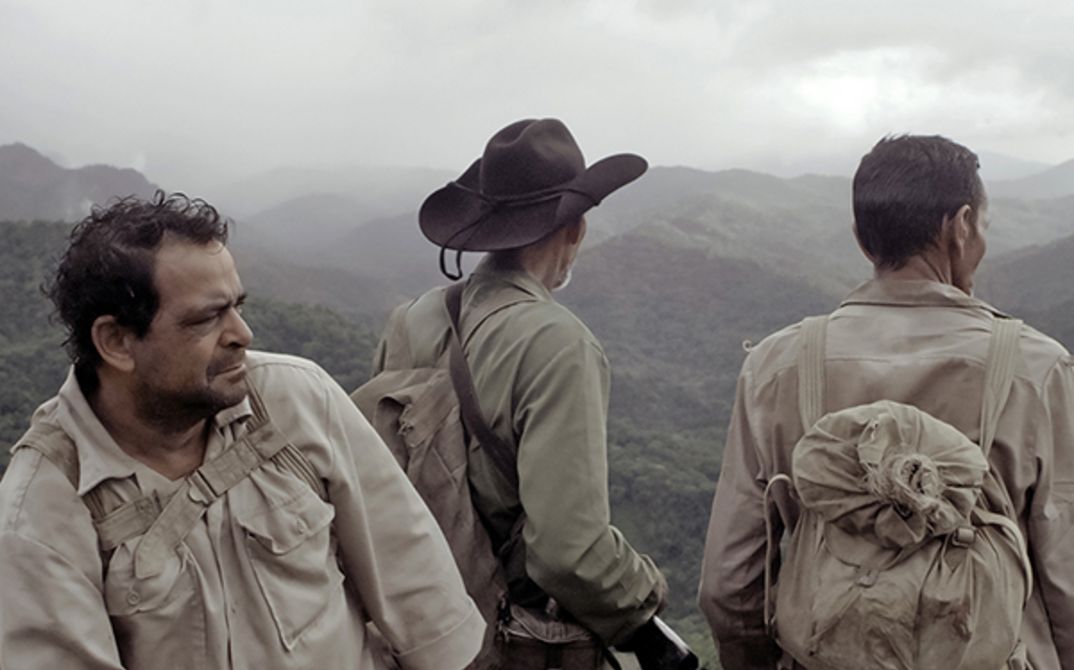75 min. Spanish.
Three men in uniform, somewhere in the Cuban jungle, are simulating a mission in Angola. From the mid-1970s to the late 1980s, Cuban troops supported the MPLA, the People’s Movement for the Liberation of Angola. The three veterans practice battle manoeuvres with the machete, or smear themselves with mud as camouflage, and then head deeper and deeper into the dense fauna – with the viewer never knowing exactly where they are headed or why. They have orders, we hear, they have to continue the struggle, to be revolutionaries forever, we hear many times. One of the men begins to doubt the sense of the whole thing, another’s leg slowly rots away, traumatic memories are shared. Entre perro y lobo tells the story of a prolonged revolutionary struggle that isn’t one, of men who just keep on going and only very gradually reach a point where they start asking questions. The rain, fog and dew, the leaves, grasses and branches surround and engulf the three. All of their revolutionary morale-boosting slogans die away in the indifference of nature, which is uninterested in questions of meaning. (ab)
Irene Gutiérrez was born in Ceuta, Spain. She completed a bachelor's degree in Documentary Cinema at the International Film School of San Antonio de los Baños in Cuba, and a master's degree in Art & Cinema Studies. In 2014 and 2017 Gutierrez participated in the Berlinale Talents. She is currently a doctoral student at the Charles III University of Madrid. Entre perro y lobo is her second feature-length film.
